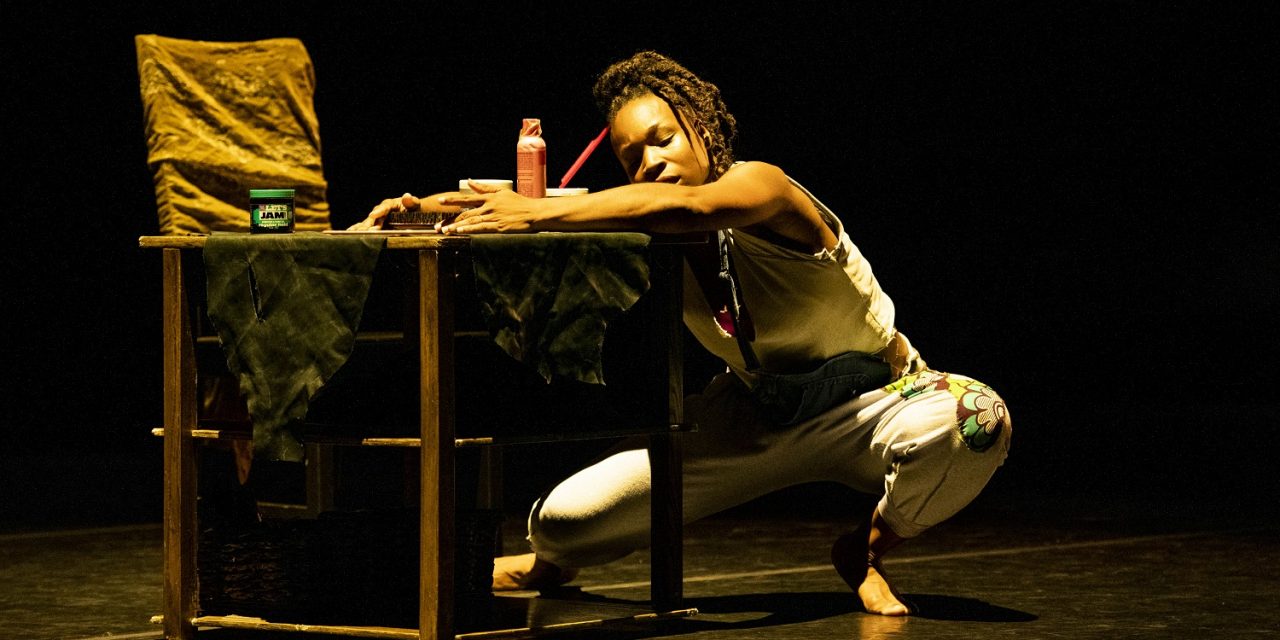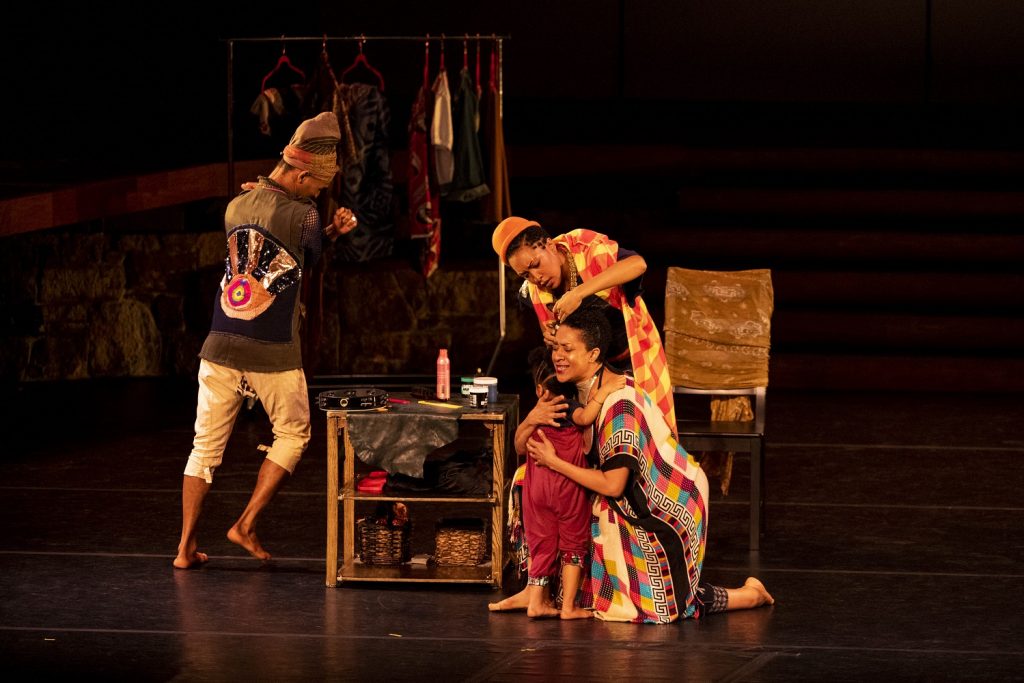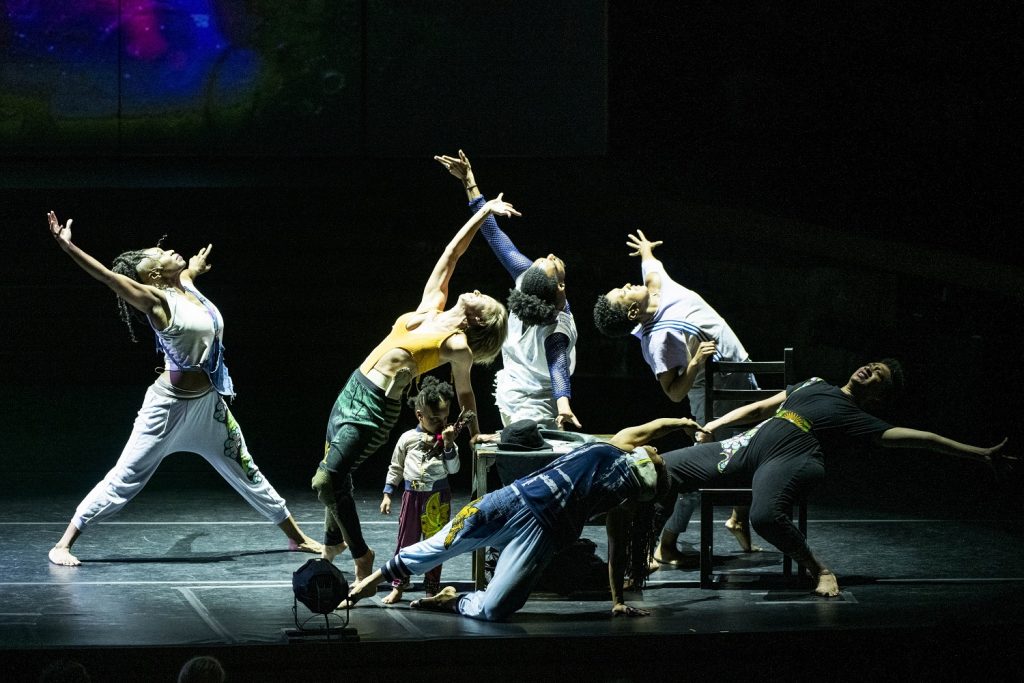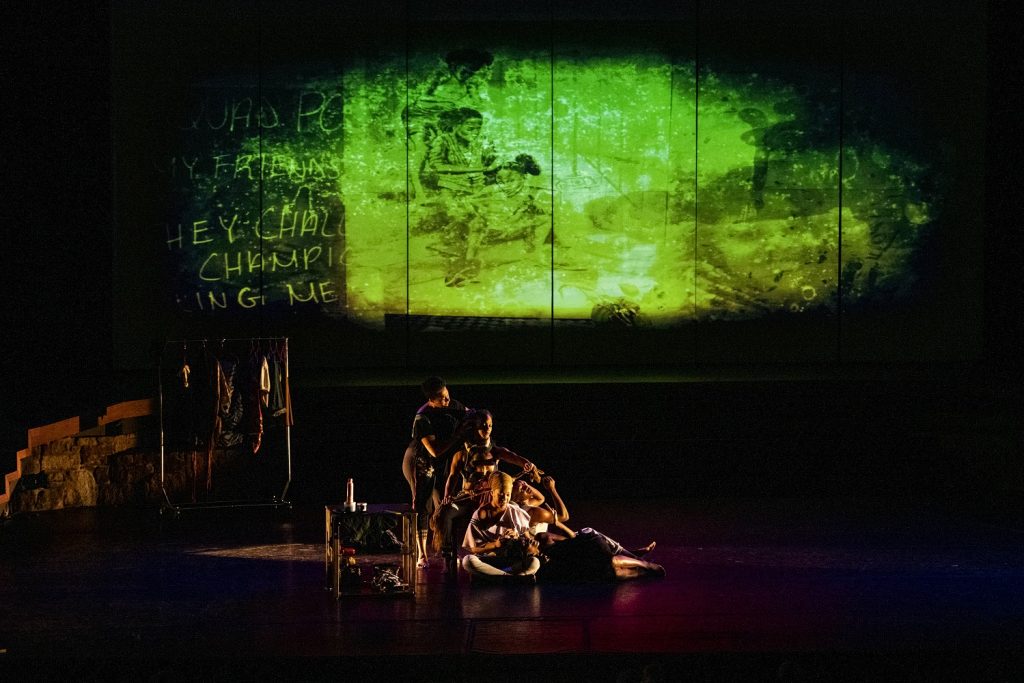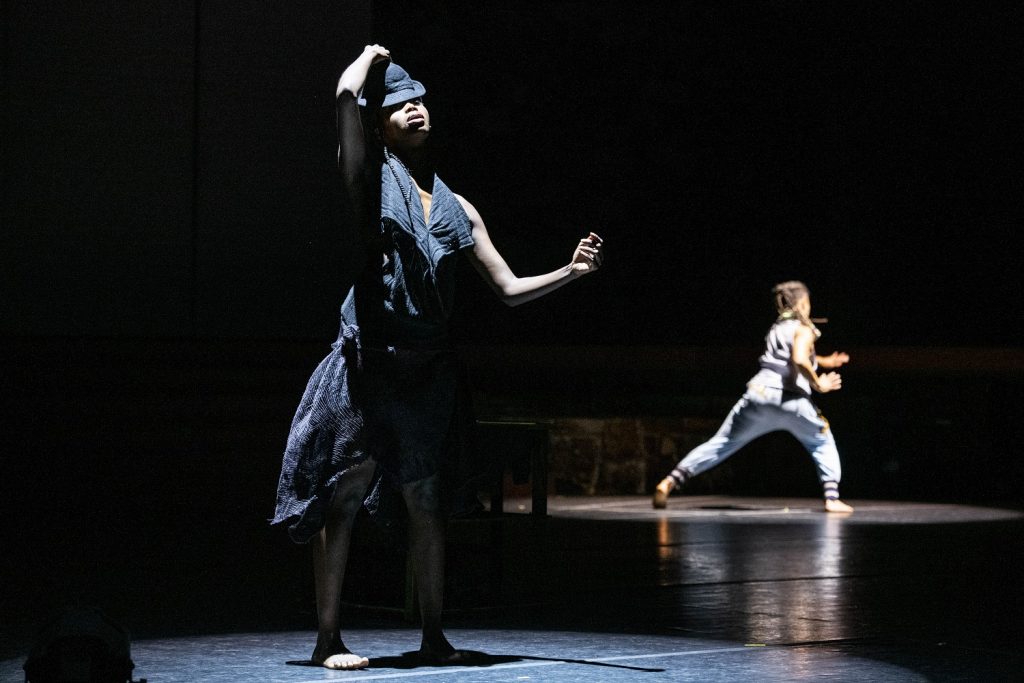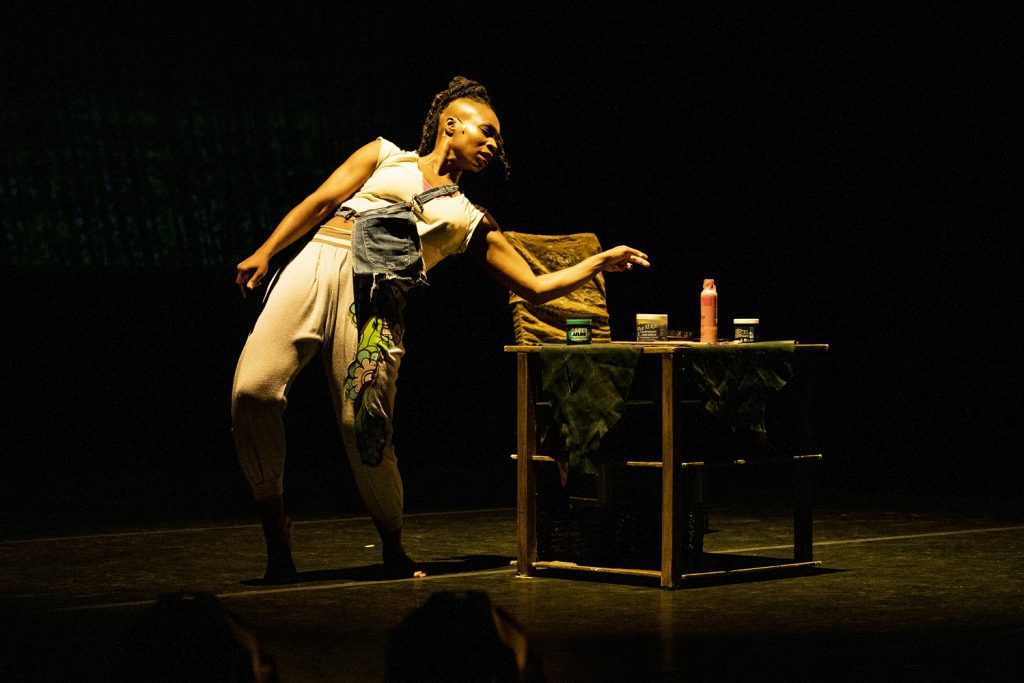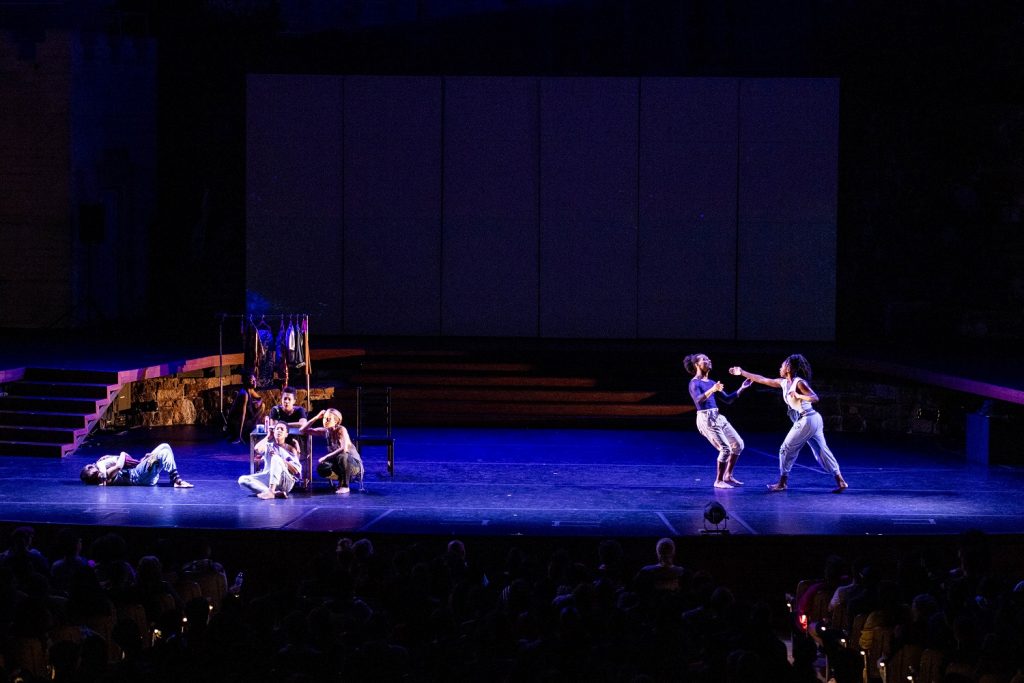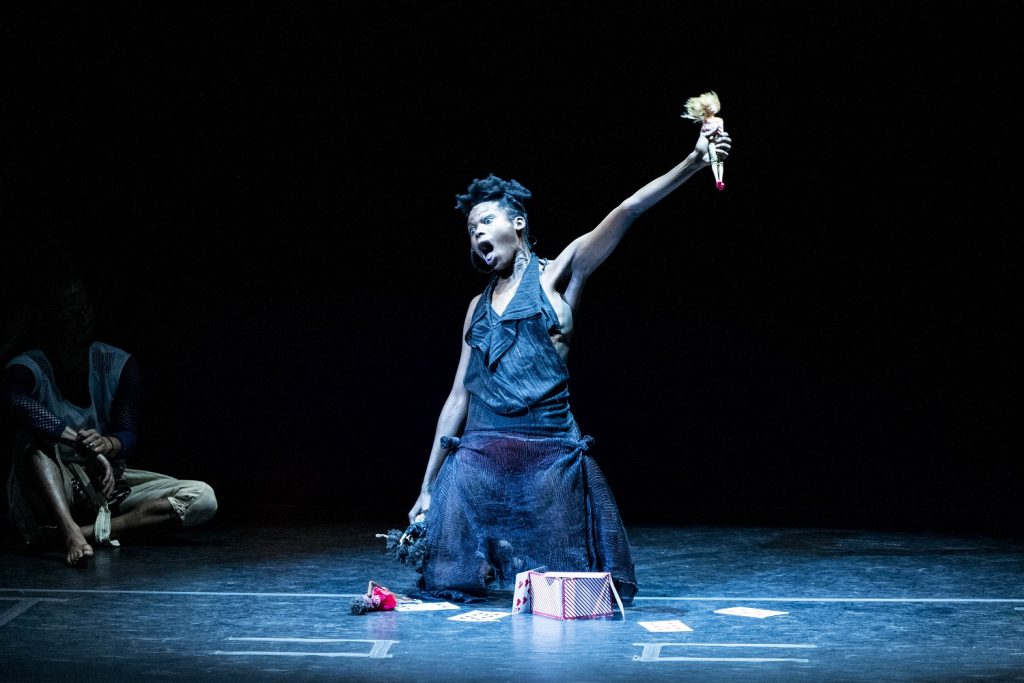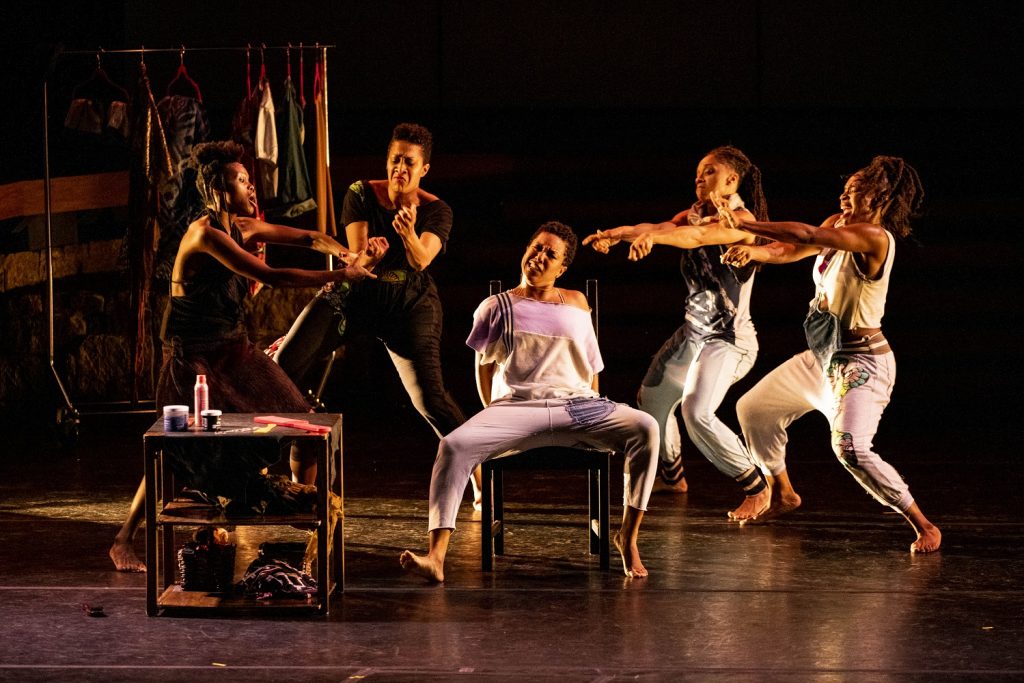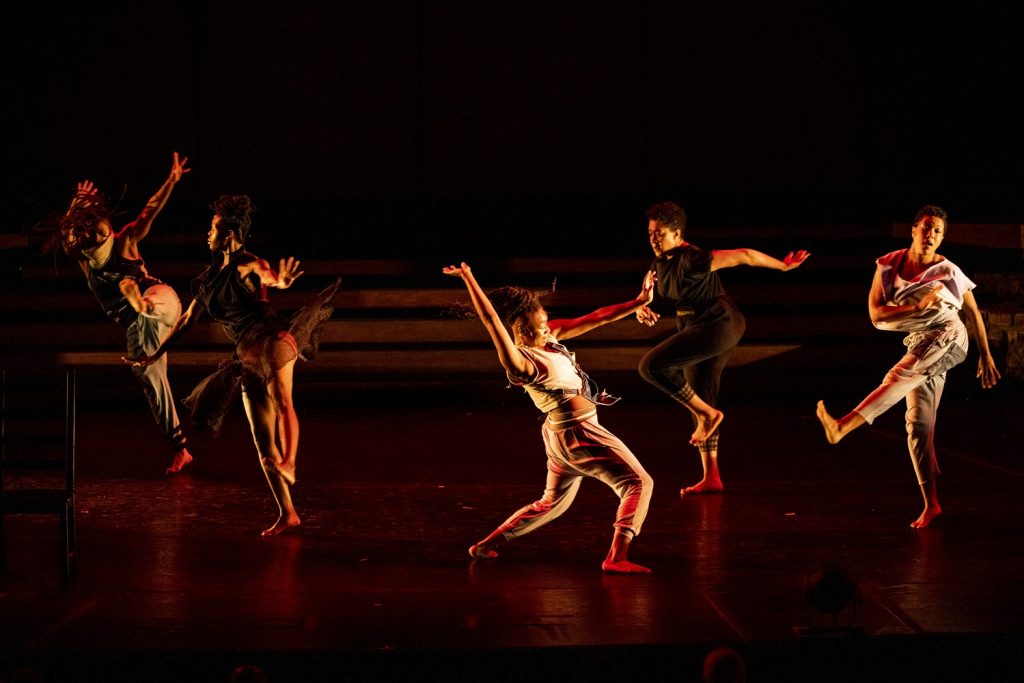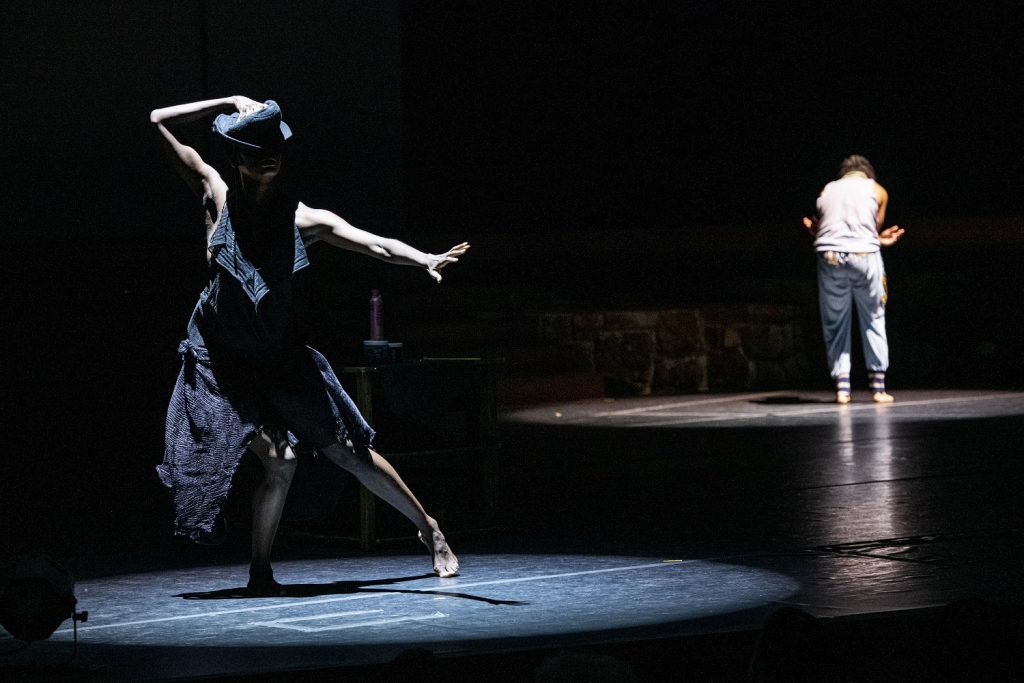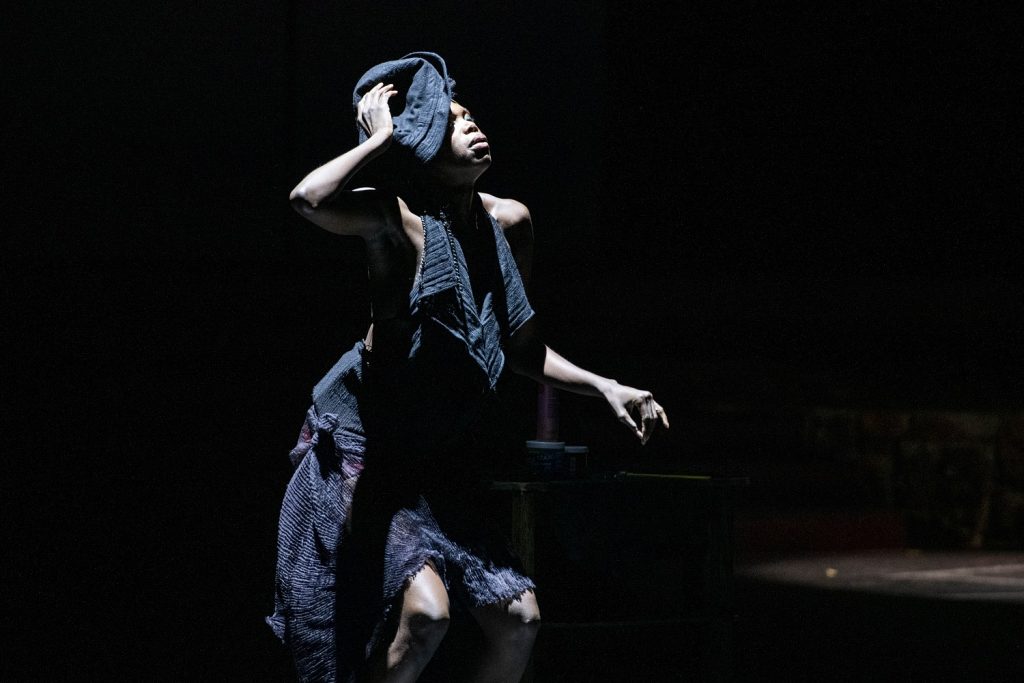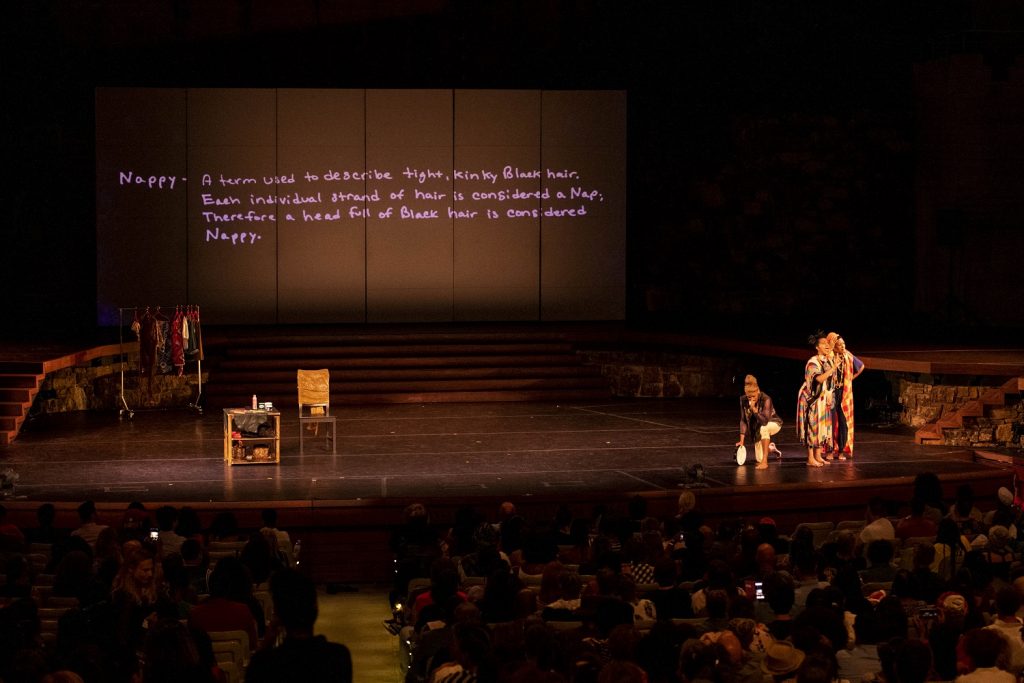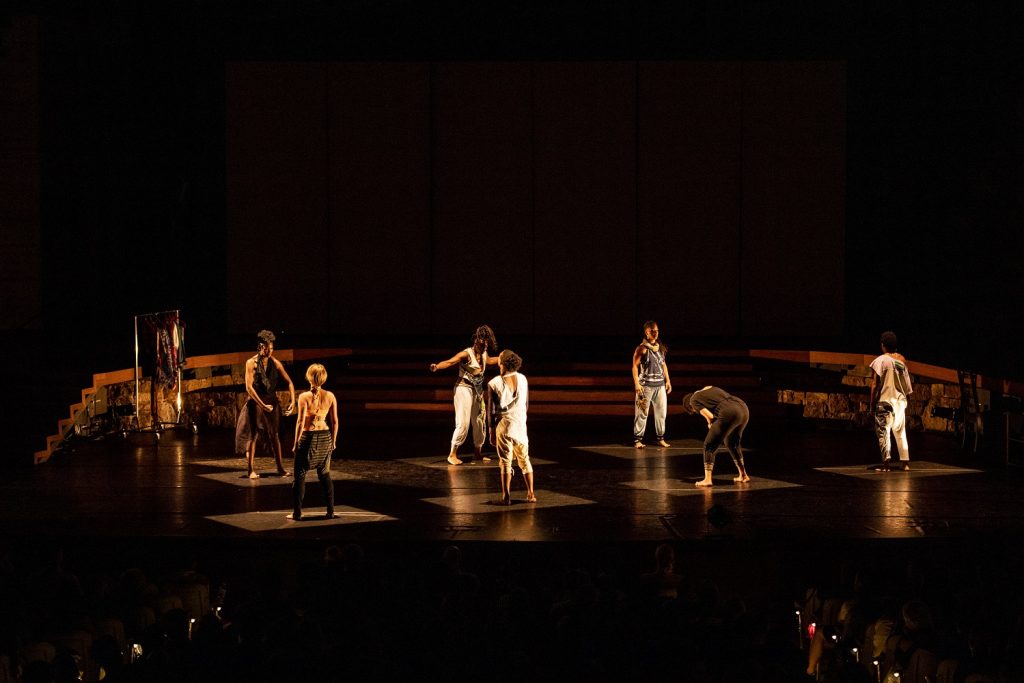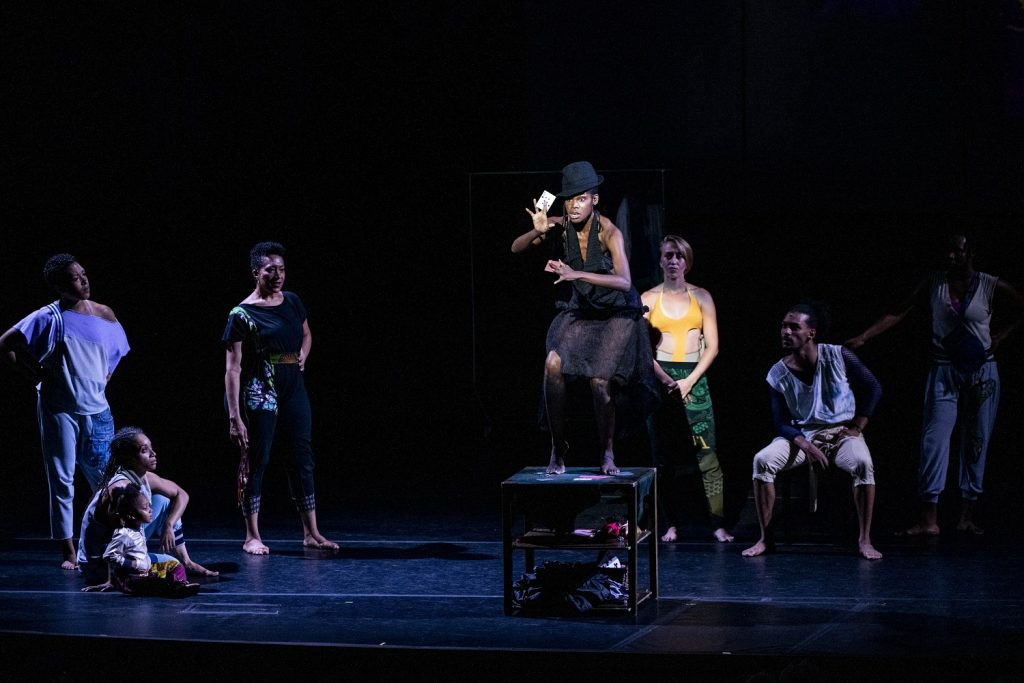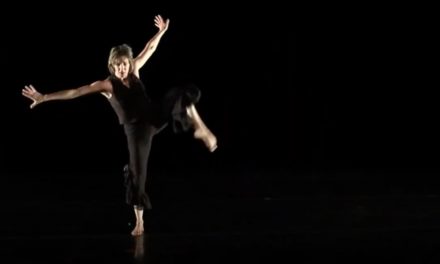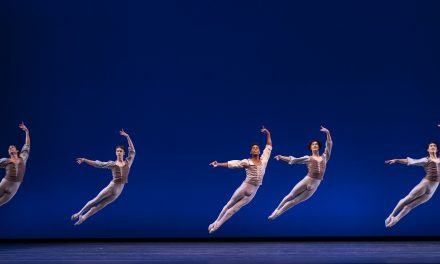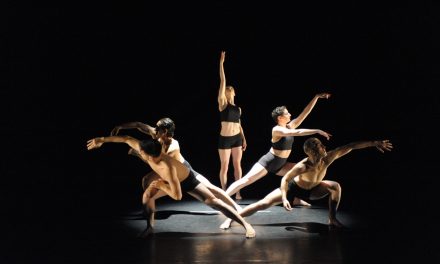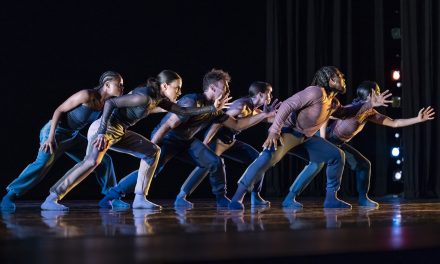At the top of the stairs to the entrance of the Ford Theatres, a woman is applying Cantu hair cream to the scalp of a young girl who has just had her braids done. This is definitely not something you would expect to see before entering a dance performance. The show is Hair and Other Stories, brought to the Ford Theatres by Urban Bush Women, an organization and dance company founded in 1984 by choreographer Jawole Willa Jo Zollar. Urban Bush Women utilizes performance, teaching, and dance-based grassroots organizing to tell the stories of disenfranchised people primarily from the voices of women of color.
Every woman walked into the open space of the Ford Theatres, all carrying their hair stories with them. Set to a profound and steady beat, the performers took the stage and reached beyond the limits of the stage with a robust and invigorating energy. Each performer embraced their individual style, from their hair to costumes comprised of what seemed to be carefully selected patches of fabric. The energy of the music continued to build until company member Du’Bois A’Keen glided from one end of the stage to the other projecting his voice into the night sky, announcing that we were not just going anywhere, but we were going beyond. Beyond what you may know, beyond what may be your expectations, beyond anything you could have ever imagined. Regardless of what “beyond” implied, it was clear that that is where Urban Bush Women took audience members that Friday night at the Ford Theatre.
The multifaceted and talented dancers utilized more of their theatrical skills in the first half of the piece. The performers began by telling stories with their words and bodies. These were stories of something that every audience member could relate to in some way – stories of hair. We were brought into this landscape of Hair and Other Stories as the women on stage began to enact the trials and tribulations of a young Black girl getting her hair straightened in the kitchen with a hot comb. Beyond the comical and dramatized enactment of the burning and pulling of hair in a kitchen chair, these women wove in the legacy and intergenerational sisterhood of Black women sharing a bond over caring for one another’s hair. An especially precious moment is when the toddler of one of the performers took the stage and the women adorned her baby hairs with love and care. These women were emphasizing the relationships built and knowledge of sisterhood and womanhood that is passed down from one generation to the next through the ritual of hair.
Through entry of story and comedy, the performers made it clear that they were not talking about just hair, but the power and privilege that comes with it. How hair can allow access to some and deny it to others. Hair and Other Stories is not just a fairytale story about the magic of hair, but a reality check on what our hair means in this world in terms of access. White hair, straight hair, for hundreds of years has been the beauty standard all over the world. This performance is not only for entertainment, but a call to action and healing. As associate artistic director of Urban Bush Women, Chanon Judson-Johnson, stated while shuffling cards on a table, “We’re going to do the hard work of understanding and undoing racism, and fold in the sweet, sweet spirit of change.”
The performers called upon the Black women in the audience to touch the roots of their hair and feel the beauty and power in their hair, despite the beauty standards of hair we see portrayed all over the world. The performers challenged the white women in the audience, me included, to feel our hair and consider what it is like to live that beauty standard that is upheld by society. The point was not to reinforce the standard of beauty by how easily it is to run our fingers through our hair, but to remind us that as white women it is time to start putting in the work and holding ourselves accountable to doing the work of undoing racism. When they asked the white women in the audience to hold hands with another white woman in the audience, I gulped, took a deep breath, and hurried to the nearest white woman I could find.
Although not fully understanding my discomfort in the moment, I had fair warning that the process might be uncomfortable, but I was also challenged to sit with that feeling of discomfort and choose growth over avoidance. I realized the challenge of this show was that it brought audience members back to self. It can be easy to write about racism, read about racism, listen about it on the radio, attend a protest, like an Instagram post, but what’s the point if we can’t bring it home to how we can undo racism within ourselves and our own lives? What I most appreciated about this performance was that the performers held the audience to a high standard of understanding and ability. If you went into this show feeling complacent about racism, I trust that you left feeling like an integral part of the work that has to be done.
I found myself craving more dance-based movement, which although not heavily emphasized in the beginning was performed and then some in the second act. Not only do these performers possess entrancing theatrical skills, but they are also strong technicians, multi-versed, and wise movers. The amount of text and story telling that came before the more dance-based pieces only gave more meaning to the feeling in their movement. There were times where the performance utilized video projection, which seemed to distract the eye from the very real and captivating movement of the performers happening on stage. These performers also made excellent use of props to work through difficult emotions and stories. It was also inspiring to see artists using their artistic expression to delve into the depths of race and racism. So rarely do we see these personal stories displayed on the main stage. Urban Bush Women not only called on us as audience members, but also as artists to wield our creative power to make a change within ourselves and the lives of others.
I have never seen such powerful control and engagement of a dance company of an audience until I saw Urban Bush Women perform. How the Urban Bush Women managed to evoke so much feeling and change within an hour and a half, I have no idea. I feel eternally grateful and forever changed by their performance. I doubt this show left any audience member unmoved, so if you have the chance to engage in the magic of an Urban Bush Women performance, I highly recommend it.
Hair and Other Stories was performed and created by Chanon Judson (artistic director), Samantha Speis (artistic director), Du’Bois A’keen (company member), Courtney J. Cook (company member), Tendayi Kuumba (company member), and Stephanie Mas (company member). The dramaturg for this piece is the founder of Urban Bush Women, Jawole Willa Jo Zollar.
Written by Corrina Roche for LA Dance Chronicle, September 9, 2019.
For more information on Urban Bush Women, click here.
For more information on Undoing Racism: The People’s Institute for Survival and Beyond ( an organization that inspired the piece and provides trainings for undoing racism) please visit www.pisab.org
To catch more dance and other performances at the Ford Theatres visit their website at fordtheatres.org
Featured image: Ford Theatres – Urban Bush Women – Hair and Other Stories – Photo: Timothy Norris

